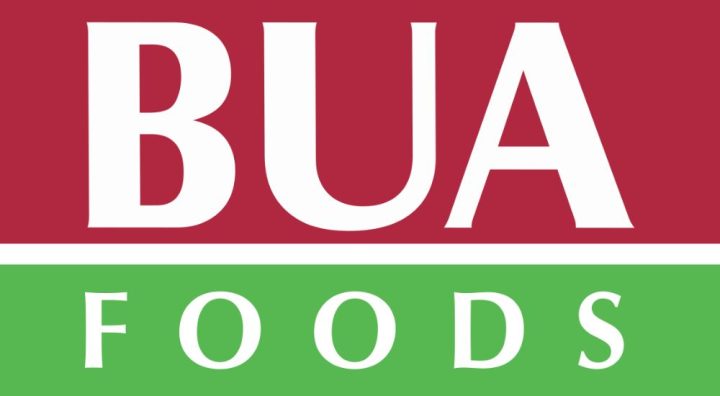BUA Foods Plc has revealed that it generated ₦1.53 trillion in revenue for the financial year ended December 2024, and is declaring a dividend of ₦13.00 per share. The company stated that its strong performance reflects both internal efficiencies and favourable market conditions across its product lines, which include sugar, flour, pasta, rice and edible oils.
The group’s financial results show a significant improvement over previous years, driven by rising demand for its consumer staples and food processing products. Increased consumption, better supply chain management, and strategic investments in production capacity helped bolster both revenue and profitability.

A key contributor to the revenue uptick was the flour and edible oils segments, which benefited from higher local demand and relatively stable input supply. BUA Foods said that the edible oils division managed to mitigate costs despite rising raw material prices, through better sourcing and optimized operations. The sugar line also showed resilience, particularly with increased output and strong performance in refining and distribution. On rice and pasta, the company capitalized on import substitution policies and consumer shifts favouring locally produced staples.
In deciding the dividend, the Board noted that shareholders should share in the success. The ₦13 per share payout was proposed following shareholder-approval processes and is contingent on fulfilling regulatory and compliance requirements before disbursement. It is also reflective of the company’s confidence in its future cash flows.
Analysts who reviewed the results say that BUA Foods has managed to balance its cost pressures well. Despite inflationary forces, foreign exchange instability and rising cost of energy and transportation, the company sustained margins largely due to scale, vertical integration, and constant efforts to streamline operations. Their insights point out that while input costs rose for many food companies, BUA Foods’ diversified operations helped spread the risk.
However, they also caution that the environment remains challenging. Currency fluctuations, rising inflation, and possible supply chain disruptions (especially for imported inputs) still pose risks. How well BUA Foods manages those challenges in 2025 will be important for maintaining the momentum.
From an investor perspective, the dividend announcement is likely to be well received. Shareholders have been waiting for consistent returns, and this level of dividend per share signals strong confidence from management in the business’s health and forward outlook. The payout could also attract more investment in the food sector, which has often been considered sensitive to macroeconomic volatility.
BUA Foods also highlighted aspects of its cost controls. The company said it is investing in improved logistics, enhancing storage and packaging efficiencies, and adopting better energy management to reduce waste. These measures, management explained, are among key strategies that allowed it to maintain profitability even as input costs rose and inflation persisted.
On the policy front, the company welcomed recent government moves to support local food industries—such as import restrictions on some staple items, incentives for local agricultural production, and efforts to ease regulatory bottlenecks. Management argued that these policies are helping local producers compete against imported goods and reducing pressure on foreign exchange.
The declaration comes at a moment when food prices remain a major concern for many Nigerian households. With inflation still high, particularly in food and transport, the performance of food producers like BUA Foods plays directly into issues of food security, cost of living, and economic stability.
Consumer advocacy groups are likely to pay attention to how much of the revenue growth and dividend payout will translate into stable prices for consumers. While companies are making profits, many consumers are watching input cost pass-throughs: toast, flour, oil and rice prices are sensitive indicators of whether food inflation will worsen or ease.
For 2025, BUA Foods has set out plans to build more capacity, expand its distribution networks, and invest in technology and sustainability. Capital expenditures are expected to go into upgrading milling capacities, storage infrastructure, and machinery that improves energy efficiency. The company is also reportedly exploring opportunities in new markets within the region, seeking to deepen its footprint beyond Nigeria.
Another point worth noting is that the dividend payout strengthens the attractiveness of food sector equities. Given that many investors have been cautious in the face of volatility, strong earnings and reliable dividends provide encouragement. It also underscores that companies with robust fundamentals can still thrive in difficult economic environments.
In summary, BUA Foods’ revenue of ₦1.53 trillion in 2024 and its ₦13 per share dividend represent both a milestone and a test. A milestone because of strong performance amid headwinds; a test because maintaining such results depends on resilience in supply chains, macroeconomic stability, and continued policy support. For shareholders, the announcement brings relief and reward; for consumers and sector watchers, the implication is that food industry investment remains central to Nigeria’s economic health.
Support InfoStride News' Credible Journalism: Only credible journalism can guarantee a fair, accountable and transparent society, including democracy and government. It involves a lot of efforts and money. We need your support. Click here to Donate
